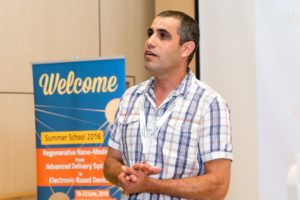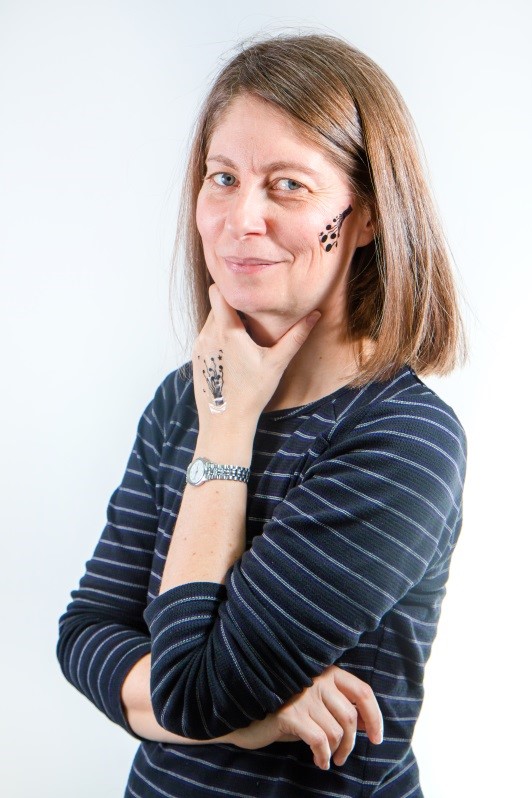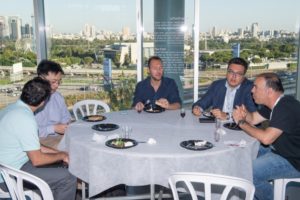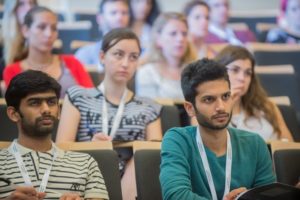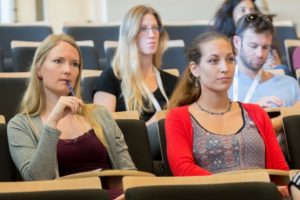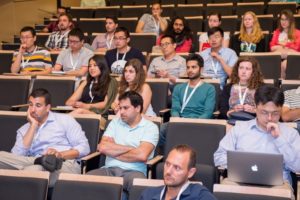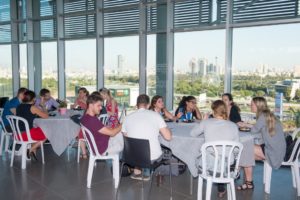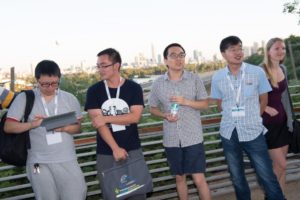The First IEEE NTC Summer School Has Been Held in Tel-Aviv University Successfully.
The IEEE Summer School on “Regenerative Nano-Medicine: From Advanced Delivery Systems to Electronic-Based Devices” at Tel-Aviv University, Israel, June 2016
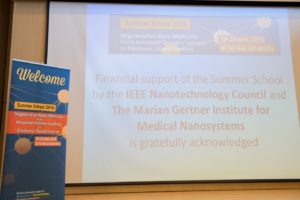
Picture 1: The IEEE Nano summer school opening
The IEEE Summer School on “Regenerative Nano-Medicine: From Advanced Delivery Systems to Electronic-Based Devices” that took place at Tel-Aviv University, Israel in June 2016 was oriented towards cutting-edge research and technologies in the fields of tissue engineering, drug delivery and their interfaces with electronics. It was combining nano-electronics and biology, focusing on current innovations and future research pathways in these fields.
About 50 multinational graduate students and post-docs from the USA, Germany, Denmark, Spain, Italy, Greece, Turkey, Czech Republic, Poland, Russia, India, China, Thailand and Israel, participated in the summer school.
The Summer School was organized by Profs. Tal Dvir, Dan Peer and Yael Hanein; all of them belong to the Center of Nanoscience and Nanotechnology of Tel-Aviv University, Israel.
Prof. Tal Dvir said: “It is our great honor that the IEEE has chosen to support our International summer school and especially that that this was the first time for IEEE Nano to support a Nanotechnology summer school “. He added that “the marketing via the IEEE channels, including the IEEE web-site as well as the IEEE financial support enabled us to bring to Tel-Aviv, leading lecturers from the US and Europe as well as excellent graduate nanotechnology students from over a dozen of countries around the world”.
Picture 2: Prof. Tal Dvir is opening the summer school
About 25 prestigious international researchers presented impressive lectures during the summer school, among them:
Prof. Ali Khademhosseini (Harvard Medical School) presented his novel research about nano and micro -engineered hydrogels for regenerative medicine.
Prof. Yossi Shacham (Tel-Aviv University) discussed in his lecture the development of electrochemical bio sensors such as: salivary electrochemical biosensors, tear base electrochemical biosensors and sweat electrochemical biosensors for medical and health care applications.
Prof. Bozhi Tian (University of Chicago) spoke about new forms of silicon for bio-interfaces between the electronic devices and the tissues or organs.
Prof. Kevin Kit Parker (Harvard University) presented his research on regeneration of heart tissue.
Prof. Hossam Haick (Technion) talked about his cancer diagnostic clinical research that combines nanotechnology with volatile biomarkers for non-invasive medical evaluation.
Prof. Ehud Gazit (Tel-Aviv University) demonstrated how very short peptides, amino acids and nucleobase can self-assembled to closed-cage nanospheres, nano-fibrils, and ordered hydrogels and how we can control the assembly of the peptide nanostructures and use them in technological applications.
Prof. Adam Feinberg (Cargie Mellon University) spoke about tissue engineering of the heart and soft robotics.
Prof. Anna Schhwendeman (University of Michigan) shared her experience firstly in the pharma industry and later on in academia in developing new drugs mimicking nature’s nanomedicine such as synthetic high-density lipoprotein (HDL) for treatment of sepsis.
Prof. Yael Hanein (Tel-Aviv University introduced in the first time novel nano-metric skin electrodes for monitoring muscle electronic activity surface electromyography (sEMG) that can be used for monitoring feelings as well as Parkinson’s disease severity and response to treatment.
Picture 3: Prof. Hanein’s nano- electrodes
Prof. Avi Shroder (Technion) spoke about artificial cells as advanced delivery systems.
Prof. Francesco De Angelis (Italian Institute of Technology) talked about interfacing current electronic and optical nanodevices with biological tissues.
Prof. Micha Spira (Hebrew University of Jerusalem) presented his research on neuron-electronic hybrid systems.
Prof. Tzahi Cohen-Karni (Carnegie Mellon University) presented the interfaces of nanomaterials with electroactive cells and tissue.
Prof. Steven Schwendeman (University of Michigan) lectured about current progress in poly-lactic-co-glycolic acid (PLGA) controlled release systems.
Prof. Paolo Decuzzi (Italian Institute of Technology) talked about double action of therapy and diagnosis of polymeric nano-constructs: from in silico modeling to pre-clinical studies.
Prof. Dan Peer (Tel Aviv University) talked about harnessing nanomedicines for precision medicines in particular for treatment of diseases with robust immune system involvement such as inflammatory bowel disease (IBD), and several types of cancer.
Prof. Ofra Benny (Hebrew University of Jerusalem) talked about rationally-designed drug delivery in cancer.
Prof. Ayelet David (Ben-Gurion University of the Negev) talked about novel nanomedicines to simultaneously target the tumor and its microenvironment.
Prof. Ronit Satchi-Fainaro (Tel Aviv University) talked about novel cancer models-based identification of molecular targets especially during the angiogenesis process in cancer for the rational design of precision nanomedicines.
Prof. Giuseppe De Rosa (University of Naples) talked about the role in skin wound healing of biomaterials and drug delivery.
Prof. Steffano Salmaso (University of Padua) talked about logically responsive nanocarriers for multimodal drug delivery.
Prof. Boaz Mizrahi (Technion) talked about stimuli responsive materials.
Researchers of Smadar Cohen’s lab (Ben-Gurion University of the Negev) talked about regenerative nanomedicine with Alginate from Marine Algae for treatment of diseases such as myocardial infraction.
Prof. Shulamit Levenberg (Technion) talked about morphogenesis of engineered vascular networks which is regulated by tensile forces.
Prof. Tal Dvir (Tel Aviv University) talked about cardiac tissue engineering, along the way from matrix design to engineering bionic tissues.
Prof. Marcelle Machluf (Technion) spoke about tissue regeneration based on nature inspired biomaterials.
Prof. Orit Shefi (Bar Ilan University) talked about nano-engineered scaffolds for neuronal regeneration.
Prof. Ennio Tasciotti (The Methodist Hospital Research Institute) talked about biomimetic nanomaterials that are used to promote musculoskeletal repair and physiologic tissue homeostasis.
The lectures were supplemented with poster session presented by the participating students, get together opening event that included introduction to the Israeli life science industry by Dr. Ruti Alon, General partner at Pitango Venture Capital and trip to the See of Galilee and to Jerusalem; All these facilitated very friendly and enjoying environment as well as informal scientific discussions.
Picture 4: Summer school speakers at lunch
Pictures 5-7 : Summer school students during lectures
Picture 8: Summer school students during lunch
Picture 9: Summer school students with IEEE labelled conference bag

